な-Adjectives in Japanese – Forms, Conjugation, and How They Work
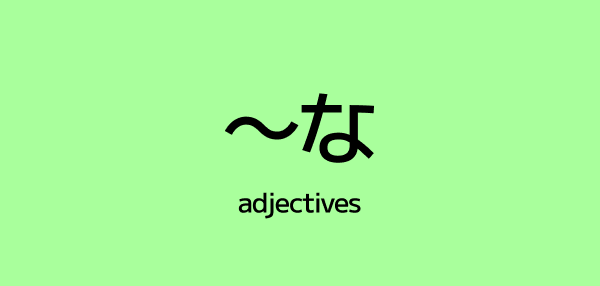
After learning い-adjectives (like 高い, 安い), the next essential piece of Japanese grammar is な-adjectives.
These adjectives are super common, like 元気(genki) or 静か(shizuka), but the way they work is a little different.
In this guide, we’ll cover:
- Whatな-adjectives are and how to spot them
- How to use them in sentences
- How to make polite, negative, and past forms
- Real examples from daily conversation
Let’s break it down.
What Areな-Adjectives?
な-adjectives are adjectives in Japanese that don’t end inい. Instead, when used before a noun, they need aな in between.
Think of theなas a kind of glue that helps attach the adjective to the noun.
Commonな-adjectives:
- 静か(しずか)– quiet
- きれい– pretty / clean
- 元気(げんき)– healthy / energetic
- 有名(ゆうめい)– famous
- 便利(べんり)– convenient
- 大切(たいせつ)– important
How to Useな-Adjectives
Before a noun
You need な to connect the adjective to the noun:
- 静かなまち → a quiet town
- 元気なこども → a healthy child
At the end of a sentence
Noなneeded — just addです(for politeness):
- この まち は静かです。→ This town is quiet.
- あの こども は元気です。→ That kid is energetic.
How to Conjugateな-Adjectives
Here's how to change them into negative, past, and past-negative forms.
Let’s use 元気 as an example:
1. Present (Affirmative)
- 元気です。→ I’m fine / He’s healthy.
2. Present (Negative)
- 元気じゃないです。→ I’m not fine. (じゃない= casual negative)
You can also say:
- 元気ではありません。→ (more formal/polite)
3. Past (Affirmative)
- 元気でした。→ I was fine.
- 静かでした。→ It was quiet.
4. Past (Negative)
- 元気じゃなかったです。→ I wasn’t fine.
- 静かじゃなかったです。→ It wasn’t quiet.
You can also say:
- 元気ではありませんでした。→ (formal)
じゃないvs.でない— What’s the Difference?
You might notice there's a couple of ways to say "not ~," but they’re used differently depending on tone and formality.
じゃない
- Very common in spoken Japanese
- Becomes polite when you add です (じゃないです)
- Used with な-adjectives and nouns
Examples:
- 元気じゃないです。→ I’m not well.
- ひまじゃなかったです。→ I wasn’t free.
でない(orではない)
- Sounds more formal or written
- Rarely used in daily conversations
- Often replaced by ではありません in polite formal contexts
Examples:
- 元気ではない。→ Not well. (Formal/literary tone)
- 有名ではありません。→ Not famous. (Formal and polite)
So… which should you use?
- Use じゃないです in most polite everyday conversations
- Use ではありません if you’re writing formally or giving a speech
- You might see でない or ではない in books, articles, or anime with a serious tone — but don’t worry about using them yourself just yet
Practice Time!
Try conjugating theseな-adjectives into polite forms:
便利(べんり/ convenient)
- Present:便利です
- Negative:便利じゃないです
- Past:便利でした
- Past Negative:便利じゃなかったです
すてき(suteki / lovely, wonderful)
- Present:すてきです
- Negative:すてきじゃないです
- Past:すてきでした
- Past Negative:すてきじゃなかったです
きれい(kirei / pretty, clean)
Note: Even though it ends inい, it's aな-adjective!
- Present:きれいです
- Negative:きれいじゃないです
- Past:きれいでした
- Past Negative:きれいじゃなかったです
Quick Recap
- な-adjectives don’t end inい
- You need な when they come before a noun
- No な needed when used at the end of a sentence
- To make them negative, use じゃないです
- To make them past, use でした/じゃなかったです
Related Grammar
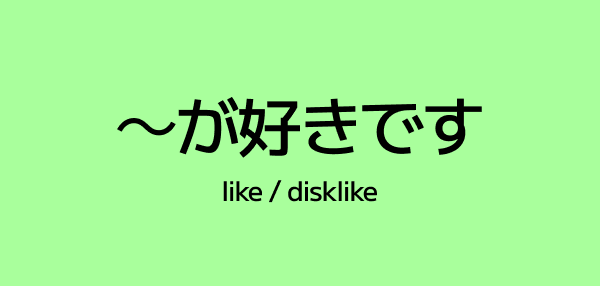 E Rank
E Rank~が好きです – How to Say You Like (or Dislike) Something in Japanese
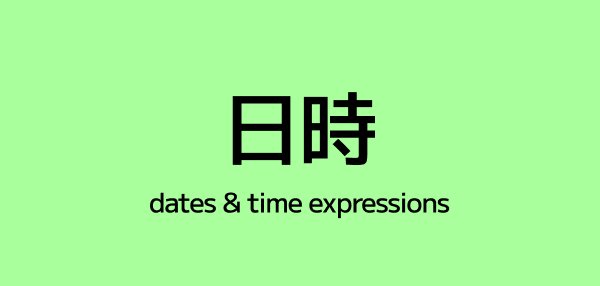 E Rank
E RankJapanese Time Expressions – Days, Duration, and How Often?
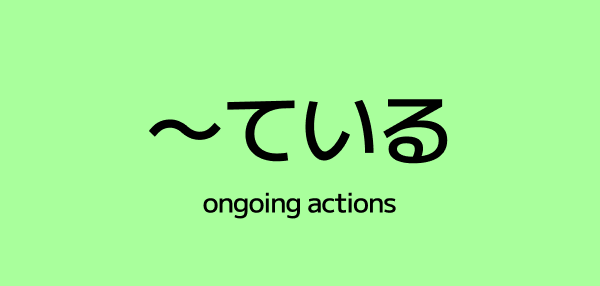 E Rank
E Rank~ている (Describing Ongoing Action or State)
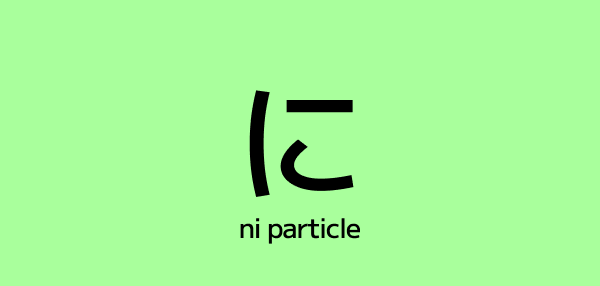 E Rank
E RankThe に (Ni) Particle
に marks time, direction, location, purpose, and more. Learn how it works—and where learners go wrong.
